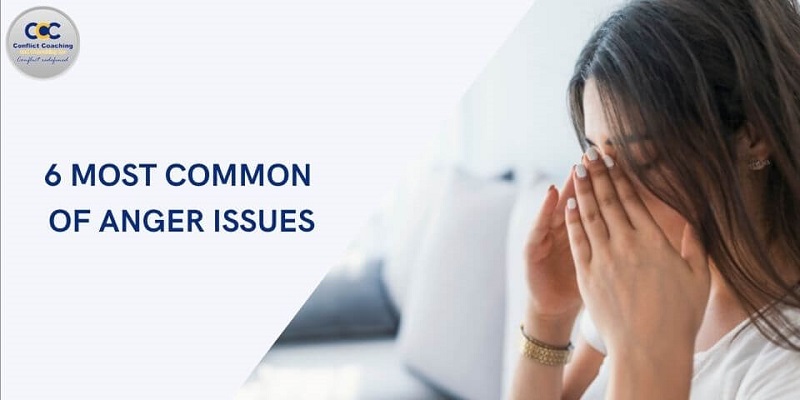
How Can Anger Affect Your Eating Habits?
Have you ever noticed that food becomes a coping mechanism during emotional states? You often tend to go look in the fridge or your snack cabinet for something to munch on. It happens because you want something to munch on, and what could be better than food?
However, research shows that human bodies are not designed for earing during stress and anger. You might have seen that craving food during anger and stress is based only on emotions. It does not happen so you can fulfill your physical needs. You simply want to eat so that you can distract yourself from the current situation.
What you don’t realize are the debilitating effects that eating during can anger can render on your body. Read on to find out how anger is linked with your eating habits and the effects of eating during anger on your emotional and physical health.
How is Anger Connected with Diet?
They say you are what you eat. We say you are also when and how you eat. You should eat when you feel hungry and feel good. Eating under stressful situations and while you are angry can have a long-standing detrimental effect on your body.
Anger is connected with your eating habits. The connection is stronger than you may think. Eating while angry or stressed can impact how much food you eat, and how much of it gets digested and provides nutritional value to your body.
In a state of anger, your blood pressure and stress hormone levels in your blood rise. You should not eat under both these conditions. After eating, your blood pressure further rises which could be harmful.
This also results in failure to digest. Indigestion, upset stomach, feeling bloated and having acid reflux are all common signs that you may experience after eating while angry.
Moreover, your immune system is prone to get compromised if you repeatedly eat while angry or stressed. When you are angry, the protective barrier in your intestine weakens. This allows the intestinal bacteria to enter the bloodstream. Hence, you risk yourself to autoimmune diseases and diarrhea when you choose to eat while angry.
Reasons to Avoid Eating Food When You’re Angry
Why do you eat? Because you feel hungry and need nutrition to fulfill your body’s needs. What happens during anger is that even if you eat, it does not fulfill your physical needs. Therefore, you should avoid eating during an anger outburst.
Just like you should avoid other activities during anger as it is likely to make your mood sourer, you should also avoid eating.
Let’s understand what happens to your body while in anger. The second type of nervous system, the sympathetic system gets activated during stress and anger. It shuts down the digestive system. So, anything you eat is likely to remain undigested and make your stomach upset.
Other reasons to avoid eating while angry include:
- Your blood pressure increases during anger
- Blood sugar and cholesterol levels increase,
- Stress hormones like cortisol are released which make digestion more difficult, and
- You are more likely to do emotional eating and overindulgence.
When you eat while angry, your body won’t be able to properly break down and digest the food. It could lead to serious stomach complications like bloating and reflux.
How To Manage Anger from Affecting Your Health?
Whatever the situation may be, your health must always remain your first priority. Therefore, the first thing you should do is to promise yourself that you won’t eat while angry. After this, you can follow some of the below mentioned tips to avoid letting angry emotions affect your eating habits.
The first thing is to make sure you eat whenever you feel hungry. If you remain hungry for a long period of time, your sugar level drops and you are likely to become angry. You are also more likely to overindulge when you finally get to have food. Do you see how anger is linked with your eating habits?
Therefore, keep some healthy snacks on you at all times so you can munch on them if there is time for lunch. You must do this at your workplace. If there is time for the lunch break and you are already feeling hungry, it is best to eat some nuts or even fruit like an apple. This is a good way to ensure that your mood remains fine and your colleagues don’t put you off and vice versa.
There are other things to ensure that anger does not affect your health
Read these ways to learn how anger can damage your eating habits and what you can do to avoid it.
- Distract yourself and vent out your anger in an appropriate manner. You must learn how to manage your anger. See what you can do to calm yourself down and do that. Once you feel better, you can turn to eat.
- Write down your thoughts. If you are at your workplace and you don’t know how to calm yourself, you can pen down your thoughts. Journaling helps in relieving tension and overcoming stressful thoughts.
- Do exercises. If writing down does not work for you, then you can opt for whatever works for you. You can go for a quick walk or talk to a friend. Doing deep breathing or other anger management exercises for five to ten minutes also help greatly.
- Be mindful while eating. Don’t treat food as a distraction. Don’t rely on it just to get some comfort. When you eat, think consciously that you are going to get nutrition out of it. Don’t treat it like a chore that you just need to get done with. Be mindful. Be grateful.
- Chew properly. Often, when we are angry or stressed, we don’t give the food the attention it deserves. We take big bites and swallow them down. This is bad for health, specifically when we are angry and our digestion system is already compromised.
- Opt for Anger Management Class. It is a given that there will be times when you lose your temper. However, if this is happening to you very often and are unable to control yourself, then you should seek professional guidance. The online anger management class ranging from 4-hour duration to 52-hour can help you master your anger.
Key Takeaways
There is no dispute that anger is bad for the body. However, what we often don’t realize is that anger is connected with your eating disorders. Once or twice is alright, but if you begin to develop the habit of eating whenever you’re angrier, it is surely going to cause a lasting detrimental effect on your body.
Our body is unable to digest food in a state of anger. This happens because the body activates its sympathetic nervous system during stress. There is a high level of stress hormones like cortisol and adrenaline in the blood. These, along with the already high blood pressure, shut down the digestion system. Eating in such a state is likely to cause stomach problems and indigestion.
You are also more likely to overeat and overindulge when in an emotional state. Therefore, you should not eat while angry.
You must look for ways to reduce your anger. Try talking to a friend, journaling, deep breathing, or other ways to calm yourself down before turning towards food.
Conclusion
In this blog, we discussed how anger can affect your eating habits. Eating while angry is not suggested as it causes a negative impact on your body. Your body is in the fight or flight mode, and unable to properly digest food. Your blood pressure is also higher, and eating in such a state makes it higher.
Moreover, choosing food to be your distraction during anger causes you to overeat. Making this a practice can be the first step toward disordered eating.
Hence, we recommend that you look for ways to avoid eating while angry. Do whatever calms you down. Eat only when you are in a better headspace. Treat your food and yourself right.





Responses